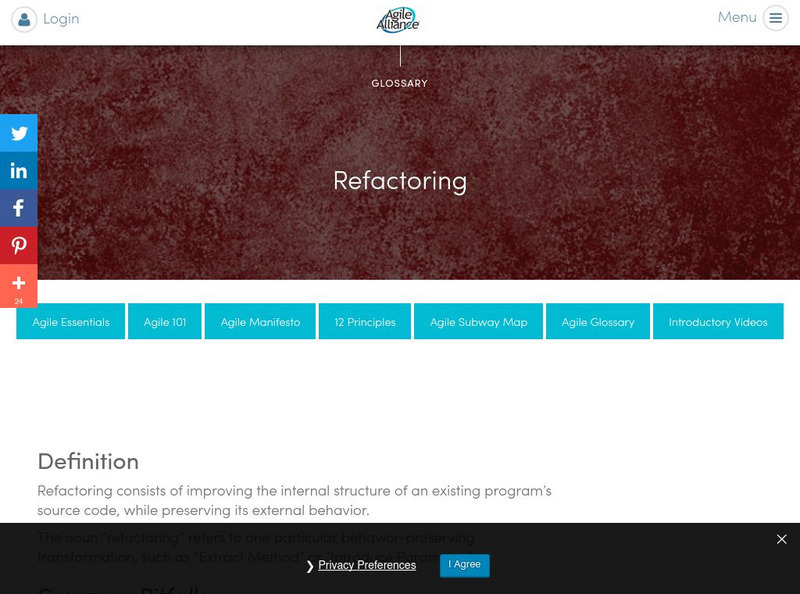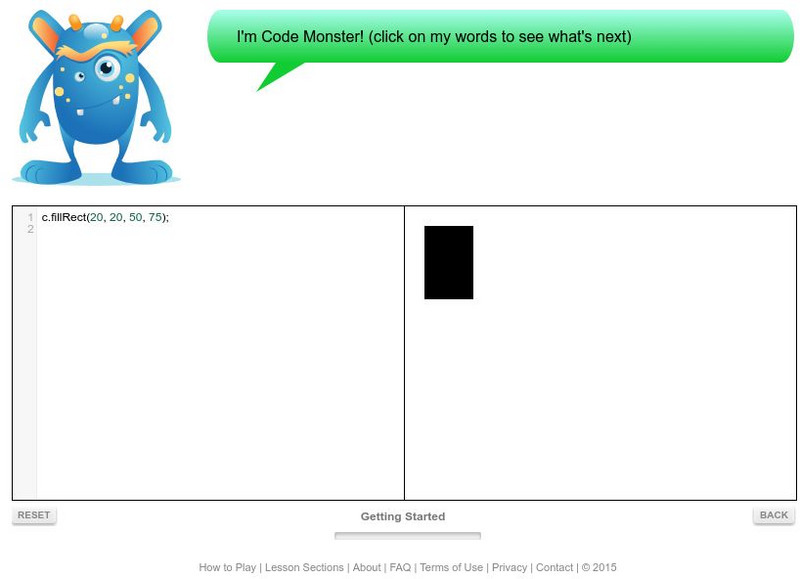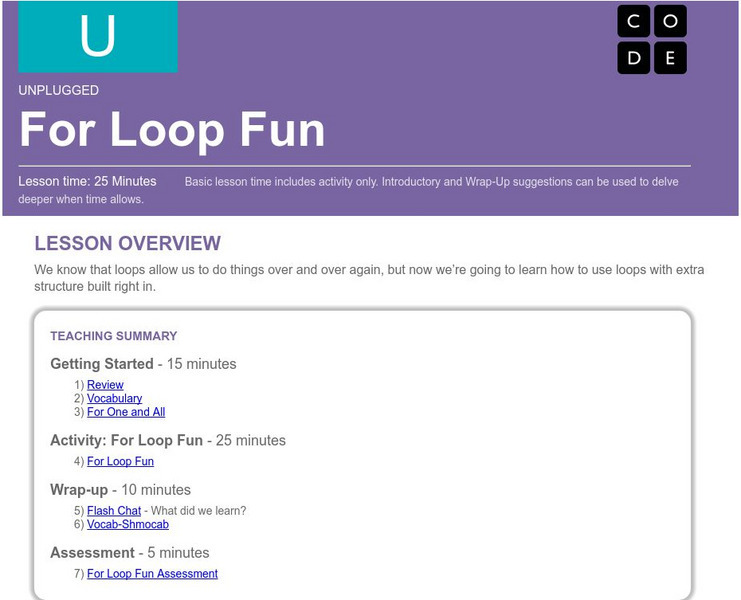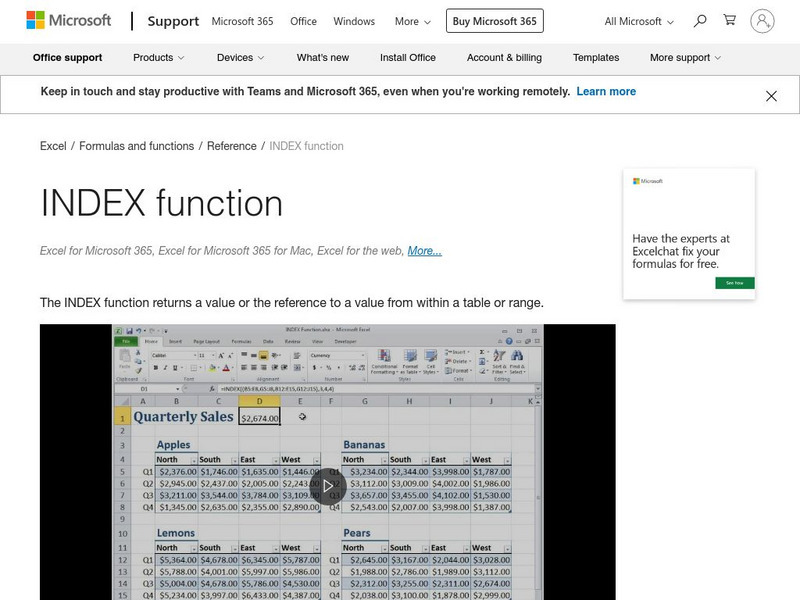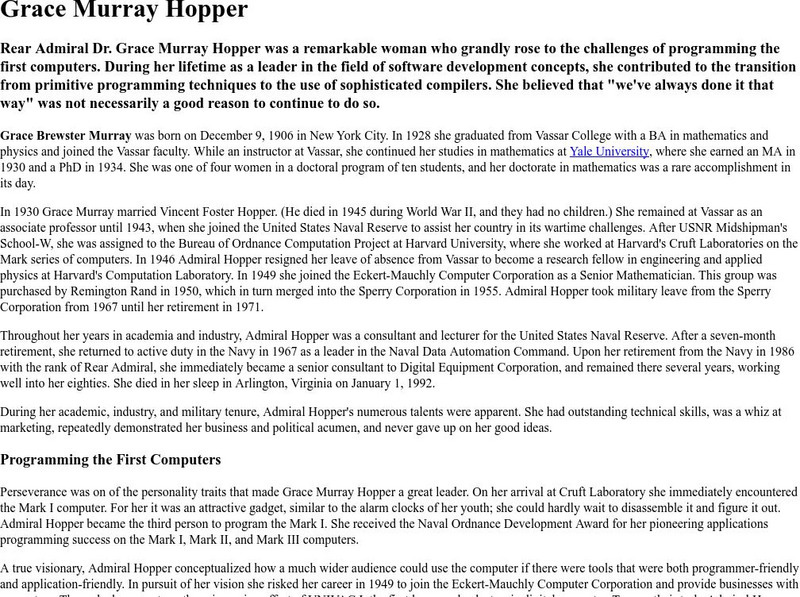Khan Academy
Khan Academy: Procedures With Return Values
Procedures can compute values for the rest of the program to use by sending back return values.
Khan Academy
Khan Academy: Procedures With Parameters
When programming, we use procedures to make our code more reusable and to better organize our code. Often-times, we pass parameters to a procedure so that we can change the output of the code.
Khan Academy
Khan Academy: Procedures With Return Values
Practice programming problems using procedures with return values.
Khan Academy
Khan Academy: Defining a Procedure Practice
Practice defining a procedure with custom programming.
Khan Academy
Khan Academy: Mathematical Procedures and Constants
With just the basic arithmetic operations, learn how to write programs to compute anything that a simple calculator can compute.
Khan Academy
Khan Academy: Conditional Repetition of Instructions
Learn how programmers repeat code using a programming construct like the while loop.
Other
Crunchzilla: Code Monster
An instructional program that shows students how to code using JavaScript. The Code Monster and his speech bubble are at the top of the screen where kids read straightforward explanations, commands, and questions. Code Monster is simple...
Other
Teaching Data Science: Teaching Refactoring to Improve Code
Learn how to use refactoring to improve computer code.
Khan Academy
Khan Academy: Ap Csp Exam Pseudocode Reference
Since AP CS Principles is taught with a variety of programming languages, the AP CSP exam questions use a pseudocode that represents fundamental programming concepts. This overview will help with the basic understanding.
Khan Academy
Khan Academy: Nested Conditionals
Learn about when a program selects one of many paths, it can use nested or chained conditionals.
Khan Academy
Khan Academy: Numbered Repetition of Instructions
Computer programs are full of repetition, since our programs automate and simulate the world around us. Programmers use for loops to repeat a set of instructions a specific number of times.
Khan Academy
Khan Academy: Storing Strings in Variables
When we're making a program, we often want to store sequences of letters. In programming lingo, we call each letter a character and we call the sequence a string.
Khan Academy
Khan Academy: Storing and Updating Lists
Learn about storing and updating lists of data in code.
Khan Academy
Khan Academy: Iterating Over Lists With Loops
Learn how to use a loop to iterate over each element, repeating the same code for each element.
ACT360 Media
Act Den: The Museum of Modern Technology
Informative, fun, and humorous tutorial that uses cartoon characters to provide an introduction to information technology. The tutorial covers operating systems/desktops, email, the world wide web, and networks.
TeachEngineering
Teach Engineering: Curiosity Killed the App
Students gain experience with the software/system design process, closely related to the engineering design process, to solve a problem. First, they learn about the Mars Curiosity rover and its mission, including the difficulties that...
Code.org
Code.org: For Loop Fun
We know that loops allow us to do things over and over again, but now we're going to learn how to use loops with extra structure built right in.
BBC
Bbc Bitesize: Development and Testing: Test Plan
Learn how developers use test plans that check a range of types of data under different circumstances.
Microsoft
Microsoft: Index Function
Learn about the INDEX function that returns a value or the reference to a value from within a table or range.
Other
W3schools: Java Methods
Learn why to use methods to reuse code: define the code once, and use it many times.
Code.org
Code Studio: Call a Function
Calls a user defined function that takes no parameters, and optionally generates a return value.
Yale University
Yale: The Ada Project: Grace Murray Hopper
A concise biography that includes personal as well as professional information.






